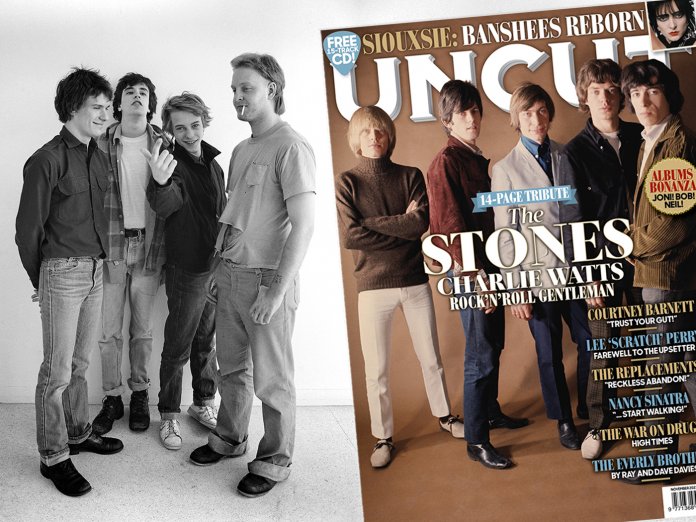July 2, 1980. The drinks and hot dogs were on special offer on the quiet Wednesday when The Replacements played the Longhorn, the ex-steakhouse that had become the testing ground for Minneapolis’s nascent indie scene. Local tastemaker Peter Jesperson had arranged their first rock-club gig, to see if they might be ready to make a record. He soon had his answer.
“They did two or three Johnny Thunders songs,” Jesperson recalls. “When I met them, they just wanted to be the Heartbreakers. Bob Stinson was a huge focal point – a jaw-dropping guitar-player, it was crazy the stuff he did. Then you had his brother Tommy, a 13-year-old bass-player, who for 15 of those 30 minutes would not have had his feet on the ground – he was flying and leaping. Paul [Westerberg]’s charisma and stage manner was very intense. Chris [Mars] looked like an axe murderer on drums, he made these crazy faces as he played. They took my breath away.”
During the next decade, The Replacements honed their legend for wilful self-destruction, routinely playing gigs where they’d bait audiences and record company executives alike, shooting themselves in both feet all part of the experience. The ’Mats revelled in being the losers’ losers – a reputation that persisted long after they’d blown apart in 1991 and Bob Stinson’s death in 1995.
“We never had enough energy to be a total punk rock band and we never really cared to be rock stars,” says Tommy Stinson. “We pretty unabashedly did whatever the fuck we wanted.”
Westerberg adds: “We felt like, let’s make them remember us, be it good or bad.”
But a new boxset released to celebrate the 40th anniversary of The Replacements’ debut album, Sorry Ma, Forgot To Take Out The Trash, documents a very different band. Between 1980 and 1982, The Replacements didn’t venture far from their Twin Cities base. Fuelled by a mutual desperation to make their mark and escape troubled home lives, the young ’Mats were a remarkably focused proposition.
“I loved ’em,” says Chan Poling, singer with Minneapolis contemporaries The Suburbs. “When we started, glam punk rock like Joan Jett was coming out of LA, even New York bands like Talking Heads were more art-rock and British influenced. The Replacements were one of the first to get back to an Americana, grungy roots rock, a throwback to the blues, folk, Big Star and Neil Young. Tom Petty was doing that in a bigger, more commercial sense – but The Replacements had that punk, super-young, super-smart edge to it, too.”



